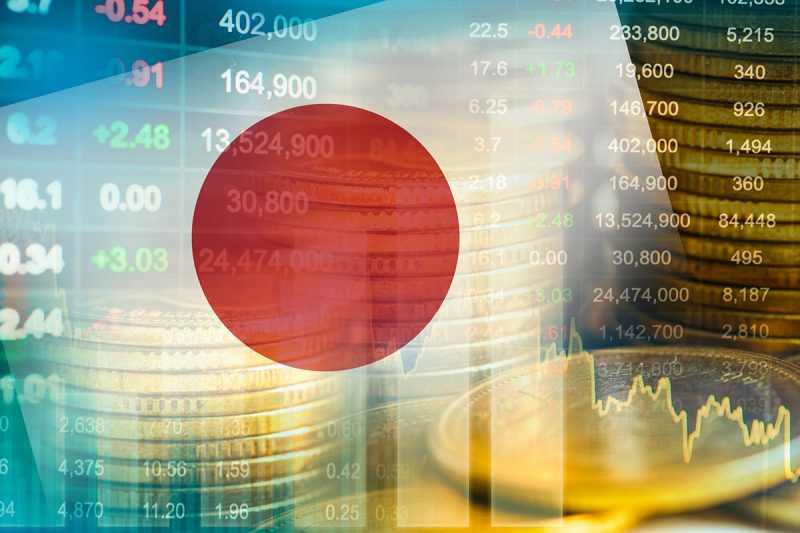Japan’s digital drive brings record FDI commitments
Data centre and chips make up the lion’s share of foreign capital announced in the country.
Companies announced record foreign direct investments in Japan over the past two years, as its digitalisation drive attracts interest from semiconductor companies and data centre developers.
Direct greenfield investment commitments in Japan surpassed $30bn in 2024, a record high and up from the previous record of $27bn a year earlier, according to fDi Markets. FDI projects have also trended upwards from a seven-year low of 176 in 2021 to 223 last year.
Business confidence has improved too. The sentiment index for Japan’s major manufacturers rose from 12 in March to 13 in June, according to the Bank of Japan’s quarterly report (a positive figure indicates that there are more optimists than pessimists). Large non-manufacturing companies sentiment slipped slightly from 35 to 34 over the same period, but was still near its highest levels since the early 1990s.
The greenfield FDI resurgence follows years of difficulty for the world’s fourth-largest economy. Japan’s ageing population has weighed on its economy. Real GDP growth stood at just 0.2 per cent in 2024 — the second lowest in the G7, according to Consensus Economics. It is forecast to expand by 0.8 per cent in 2025.
A recent US–Japan trade deal set a 15 per cent baseline tariff, allaying some concerns about threats to Japan’s export-led model. However, Japan still attracts less headline FDI than its peers. In 2024, net FDI inflows stood at 0.4 per cent of GDP, above the UK (0.1 per cent), but lower than Canada (2.8 per cent), France (1.8 per cent), the US (1.3 per cent), Germany (1 per cent) and Italy (0.9 per cent), shows World Bank data.
The Japanese government aims to improve the business environment for foreign companies through subsidies and support. Digital transformation is being promoted to help Japan achieve its target of ¥100tn ($677bn) in FDI stock by 2030 and address its declining working age.
“An ageing population and the pandemic experience has accelerated the belated move towards digitalisation, resulting in a demand drain through imports, especially from the US,” says Shigeto Nagai, head of Japan Economics at consultancy Oxford Economics. He adds that rising awareness of economic national security and secular digital demand has driven the sharp rise of FDI in strategic industries.
Almost two-thirds of the $57bn of greenfield FDI committed to Japan in 2023 and 2024 were in the semiconductors and communications sectors, fDi Markets data shows. Japan has promoted the use of new technologies such as blockchain and AI across society.
“This overall AI phase has really reinvigorated the overall Japanese IT and semiconductor industries,” says Satoshi Matsuoka, head of the Riken Center for Computational Science in Kobe, home to Japan’s most powerful supercomputer. This includes partnerships with like-minded foreign partners, he adds.
One such example is US-based Western Digital and local Kioxia Corporation’s joint venture. They plan to build memory chip plants in the cities of Yokkaichi and Kitakami, after receiving approval for a subsidy of up to ¥150bn in early 2024. Taiwan’s Global Wafers and TSMC are also expanding their presence in Japan.
TSMC’s planned $23bn logic chip fab campus in Kumamoto has made significant progress and attracted suppliers and logistics firms. The contract chipmaker started production at its first fab in December 2024, with a second fab set to come online in the second half of 2025.
Data centres have also been a major driver of FDI into Japan. Ada Infrastructure, a subsidiary of Singapore’s Global Logistics Properties co-owned by New York-based asset manager Ares, is developing three data centre campuses in Greater Tokyo.
Blair Jacobsen, Ares’s co-president, said in a statement that “increasing adoption of AI and cloud computing technologies positions Japan as a key data centre market”.
Alongside major real estate projects, Japan has attracted $5bn of announced FDI into renewable energy projects in the past two years, including into energy storage, wind, solar and biomass.
Imatomi Motohiro, manager in Mitsui’s iron and steel division, tells fDi that Japan’s lack of fossil fuels create a “necessity for green energy” development. “We believe that although we have seen project delays … Japan will be a rather stable market in the coming years,” he says.
fDi Markets





